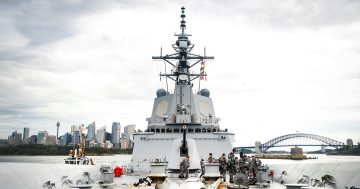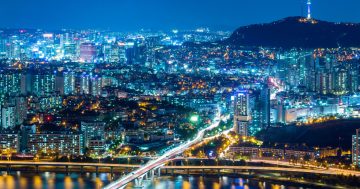Thomas Byrne and Jonathan Corrado* say North Korea is doggedly pursuing a path that can lead only to further isolation and economic collapse.
 “If something cannot go on forever, it will stop.”
“If something cannot go on forever, it will stop.”
Chair of the Council of Economic Advisors under the Administrations of Presidents Nixon and Ford, Herbert Stein made this observation.
However, the fundamentally unreformed, immutable North Korea continues to test the limits of Stein’s principle as it enters its eighth decade.
In his report to the Korean Worker’s Party Congress, North Korean leader, Kim Jong Un admitted the country’s previous five-year plan had failed.
So he laid out a new five-year economic plan. We tally this plan as the country’s 11th.
Unfortunately for the people of North Korea, the new plan does not offer a credible framework for overcoming the head-winds howling down on the economy.
Most likely, North Korea’s economy contracted in 2020 more than at any time since the collapse of the Soviet Union in 1991.
Sanctions and the COVID-19 border closure with China have sharply cut back trade and have crimped the inflow of renminbi.
That, coupled with Pyongyang’s measures to wring hard currency from the special donju class of entrepreneurs and financiers, has dried up sources of domestic hard-currency investment.
Under these circumstances, the North Korean economy has been pushed to the brink — again.
Kim admitted to setbacks in the past.
“Economic construction failed to hit the expected strategic goals,” he said, while growth objectives “fell a long way short”.
The standard of living “could not be improved remarkably”.
Technology was insufficiently utilised, and labour operated in an “irrational work system” with “incompetent” and “obsolete” working methods.
In response, the Party Central Committee will strengthen unified guidance and strategic management over the economy.
This involves a policy of micro-management in various sectors, such as mining, machinery, chemical industries, and power.
The invisible hand of Adam Smith will have no place in the new plan, albeit with some market activity likely to be tolerated at times.
Reconsolidating central control is short-sighted and unsustainable.
Quasi-market activity has likely been the only source of growth in the economy in the past five years since international sanctions were ratcheted up.
Kim Jong Un’s doubling down on self-reliance and shunning external financial assistance is in reality making a virtue out of necessity.
North Korea is the only country bordering China that is not receiving Belt and Road (BRI) infrastructure investment.
This is probably due to two reasons: One, North Korea is a very poor credit risk for China’s development banks that finance BRI projects.
Furthermore, because it is blocked by sanctions, South Korea cannot move on its offers of new economic cooperation projects for rail and road infrastructure.
Even if it could, the lack of economic policy conditionality in the financing of infrastructure and industrial projects will not create the conditions in which reforms could be institutionalised and economic growth sustained.
A curious aspect of the Party Congress report is that Kim Jong Un’s analysis of the current state of the North Korean economy is reminiscent of that made by his father, Kim Jong Il, in 1997.
At that time, the centrally-planned North Korean economy had collapsed from the delayed effects of the dissolution of the Soviet Union’s Council of Mutual Economic Assistance trade network, in which North Korea had participated.
North Korean officials blamed natural disasters. Staff from the International Monetary Fund (IMF) laid the blame on North Korean policy-makers, citing the need for “a fundamental change in policies” and an increase in transparency.
Then North Korea had the option of taking a path to economic reform, there was an exit from economic destitution.
However, in rejecting IMF advice, the leadership showed it was unwilling to open up the economy and reform.
However, in 1997 Pyongyang had not developed nuclear weapons so had not shut the door and bricked up the windows on a possible diplomatic opening which would set the stage for economic engagement with international financial institutions.
Now, North Korea has neither the willingness nor the ability to pursue systematic and sustainable economic development.
North Korea is destined to remain in the same situation as the characters in Jean Paul Sartre’s existentialist play — locked up in a room in the netherworld, the windows all bricked up, and there is ‘No Exit’.
*Thomas Byrne is President and Chief Executive of the New York-based Korea Society. He can be contacted at [email protected]
*Jonathan Corrado is Policy Director at the Korea Society. He can be contacted at [email protected].
This article first appeared in the Pacific Forum newsletter.






